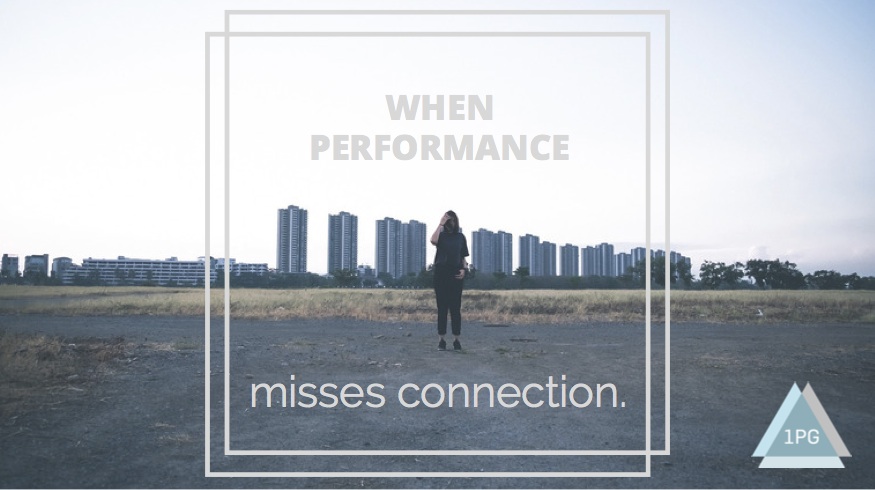When Performance Misses Connection
 “Perfectionism is a self destructive and addictive belief system that fuels this primary thought: If I look perfect, and do everything perfectly, I can avoid or minimize the painful feelings of shame, judgment, and blame.”-Brené Brown
“Perfectionism is a self destructive and addictive belief system that fuels this primary thought: If I look perfect, and do everything perfectly, I can avoid or minimize the painful feelings of shame, judgment, and blame.”-Brené Brown
I had a therapist colleague this week challenge me in a way I was not expecting. After leading a group together she asked me this simple question: "When am I going to see the real Michael Pepper in that therapy room?"
I could sense my blood pressure rising. What is she talking about? I am the real me! I wanted to be defensive, make excuses, try to reason my way out of what she had clearly seen in me.
She continued by pointing out that she knows me, she knows my gifts and abilities, but what she continues to see is me performing. Ouch.
It stung because I know it's true. In spite of all my writing and constant talking about being authentic, I still project myself as someone I'm not most days. I put on a façade. I project a personality that is not anxious, is not fearful, is not struggling to make it work some days.
And this is for obvious reasons that we all have. Mine comes from a deep fear of inadequacy. A fear that if I do not put my best foot forward I will let others down...I'll look stupid...I'll confirm the doubts and hesitations other people have about me...
The Result of Performance
But what my colleague insisted on, and what stuck out to me, was that by not giving of my authentic self, people in that room were more guarded with me. They could sense that I wasn't being real. They could feel my presence as fake and it did not encourage them to open up.
This certainly makes sense in a therapeutic context, but what about across other areas? What if by fearing that people will see I don't have it all together, they instead interact with such a fake version of me that the results are just as poor? What if by projecting that I have a confidence I don't, I push people away who were hoping for someone that was a little more rounded, a little easier to deal with?
Finding the Balance
There is a balance - the person who is constantly touting their weaknesses and basking in the 'authenticity' of how broken they are might be a little too much to interact with. People will be left feeling like they had to do more for you than felt comfortable.
But somewhere in the middle is where we connect.
Somewhere in the middle is where I can lean into the unique ways God has gifted me...own those...but also show that I am a human, in progress, with lots to learn.
Learning scares me. I say I love it. But deep down I love something once I have learned it, not while I'm learning it. I am beginning to experience that being willing to learn means being willing to show more of myself than I am comfortable showing. It also means being willing to not always perform. When I give up the need to perform in a way that effuses an inaccurate confidence, I allow people in.
But is that enough? It depends on what our goal is. If my goal is to make it up the ladder, becoming more and more successful, then I will probably buy more into the idea that I have to "fake it until I make it." And don't get me wrong - this works. You can be successful and fake it, and make it. However, if my goal is to really connect with others (and myself) in the process, I have to be willing to ease out of performance mode. I have to give up on the idea that success = being right all the time. Or success = being better than those around me.
Performance anxiety seems to be more of a social problem than a performance problem. What will people think of me if I don't perform how they expect me to? I think the more I let go of this, the less I look for success. People will interact with the real me, I will worry less about what that means, and the outcome won't be measured on where we went, but how we got there.
What areas do you do need to reconsider your focus on performance over connection?
